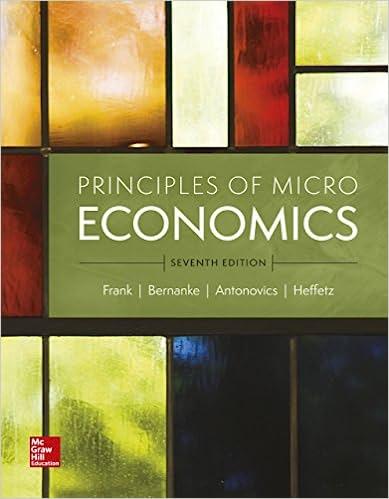Question
By now you have a sense of the importance economists attach to incentives. In a nutshell, if we change the relative price of this or
By now you have a sense of the importance economists attach to incentives. In a nutshell, if we change the relative price of this or that, consumers will respond. As we've seen, the use of taxes and subsidies to change behavior is nothing but an application of this concept, albeit at times polemical. For example, might we use financial incentives to increase student academic outcomes?
Take a look at a short summary piece of just this idea, found in the Week 4 Content Module under "DB (Week 4) Reading." The author of the article, Roland Freyer, is a professor of economics at Harvard University, who, at age 30, became the youngest African-American to receive tenure there ever. He was also later on a recipient of the MacArthur Fellowship (the so-called "genius grant"), as well as the John Bates Clark Medal, one of the top prizes awarded to young academic economists. While his work is at times controversial, he is well known to be true to the use of markets to change outcomes in disadvantaged communities. To learn more about him, while not required, I highly recommend you click on the link below, which is the transcript of a recent interview in which he talks about his personal and academic past, present, and future.
https://freakonomics.com/podcast/roland-fryer-refuses-to-lie-to-black-america/
So what do you think? Are Messr. Fryer's recommendations viable? Should local, state, and/or even the federal government provide resources for these sorts of incentives? Or is this approach not viable?
As is our norm, in your first paragraph or primary post, argue convincingly that Professor Fryer is on to something. In your second, make a counter argument. Make sure you explain just what "relative prices" he's proposing to change. Finally, in your third paragraph, suppose you're asked, as he was earlier in his career, to design such an incentive scheme for a faltering school district of disadvantaged young people. The target audience today, of course, would be those disproportionately hurt academically by the Covid school shutdowns. Identify three incentives schemes, targeted to students and/or parents and/or teachers, which you think might have the most impact. Make sure you justify your proposals.
Step by Step Solution
There are 3 Steps involved in it
Step: 1

Get Instant Access to Expert-Tailored Solutions
See step-by-step solutions with expert insights and AI powered tools for academic success
Step: 2

Step: 3

Ace Your Homework with AI
Get the answers you need in no time with our AI-driven, step-by-step assistance
Get Started


